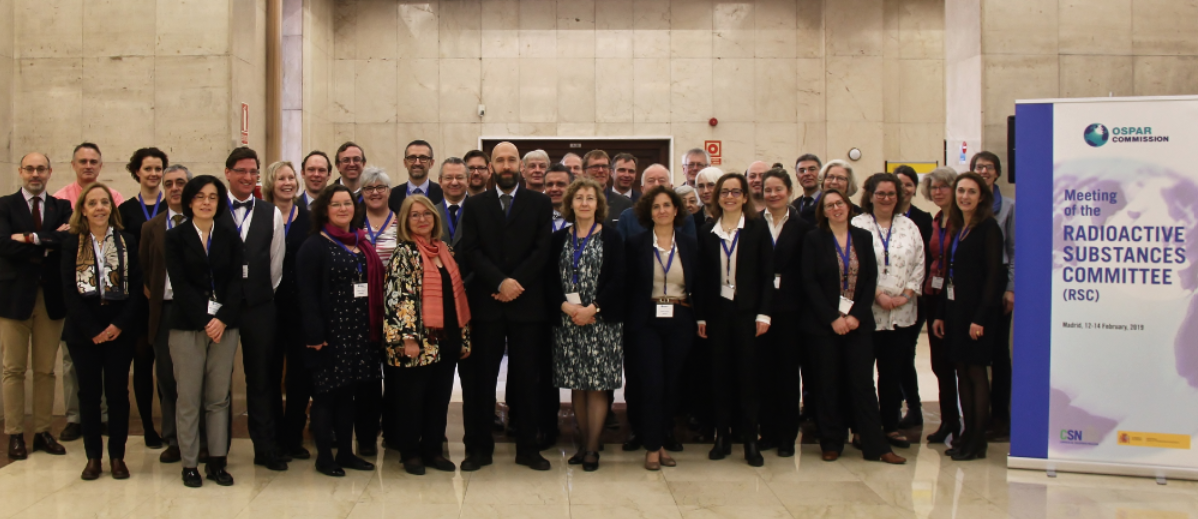Radioactive Substances Committee 2019
Meeting report by Dr Justin Gwynn, Chair of OSPAR's Radioactive Substances Committee (RSC)
The annual meeting of the Radioactive Substances Committee was held in Madrid from 12-14 February.
Review of the RSC Thematic Strategy 2010-2020
RSC finalised its review of the Committee’s progress under the current Radioactive Substances Strategy (RSS) as per the OSPAR North-East Atlantic Environment Strategy (NEAES) 2010-2020. On the basis of this review, RSC is confident that it will deliver a robust assessment of its progress in reducing discharges and concentrations in the environment for the next Periodic Evaluation and QSR.
Development of a new Radioactive Substances Strategy 2020-2030
The main focus of this year’s RSC meeting was the development of a new Radioactive Substances Strategy (RSS) for the period 2020 to 2030. The groundwork for the Strategy discussions had been laid at 2 extraordinary RSC strategy meetings, held in London, 13 September 2018 and Oslo, 10-11 January 2019. RSC debated a proposal from the Oslo meeting for a suggested strategic objective as well as a list of potential issues to be developed as operational objectives. Key to the committee’s approach in the development of a new RSS was the recognition that RSC has made considerable progress against the current RSS. Furthermore, RSC had voiced a clear desire to reaffirm the ambition to protect the marine environment from radioactive substances and to target issues identified by RSC for further work. Following some hard and intense discussions, RSC agreed a proposal for a new strategic objective and a list of possible operational objectives for the period 2020 to 2030. As Chair of RSC, I am proud of the endeavour and commitment that has been shown by all Contracting Parties during the last year, particularly at RSC 2019, in order to forge the basis of a new RSS through common understanding.
ICG work
RSC welcomed the developments from the intersessional working groups on methodologies for the determination of close to historic levels and close to zero (ICG-CTZ) as well as on the modelling of additional concentrations of NORM in seawater from discharges of produced water from the offshore oil and gas sector (ICG-MOD). I would like to thank the task managers and Contracting Parties for their input to these crucial intersessional discussions that will allow RSC to assess its progress against the current strategic objectives.
Thank you
Finally, my colleagues and I gave thanks to Lionel Sombré, Jürgen Herrmann and Adam Stackhouse for all their important contributions to the work and spirit of RSC over many years and wished good luck to Lionel and Jürgen in their retirement and to Adam in his new position.
Dr Justin Gwynn, Chair of RSC (Norway)
More information about the work of RSC can be found here

